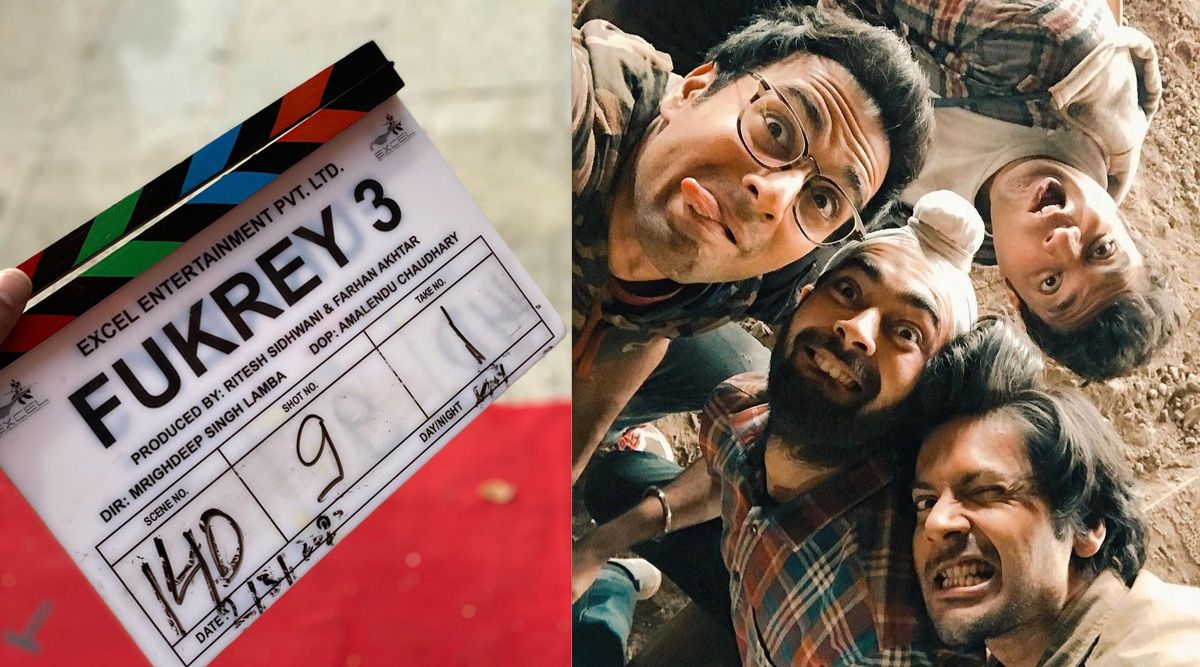Meet the invisible armies that run Mumbai’s luxury housing complexes
.jpeg)
Sep 28, 2023
Like any Bollywood movie, Punit Agarwal’s residential project in Palghar came with a twist. The CEO and MD of Nirvana Realty had constructed Wollywood, a Bollywood-themed housing complex, in Wada. The place had a film studio, a library of Bollywood films, a lake for boating, an amphitheatre and a temple much like the one Amitabh Bachchan went to in Deewar. It had all the making of a hit. Then reality struck.
Residents moved in and Agarwal realised just how challenging it was to maintain the ‘set’. “We have over 100 people maintaining the 50-acre property every day,” says Agarwal. Bhupendra Sawant, general manager of the project explains that while other residential complexes just have a basic clubhouse and a pool, Wollyood’s frills called for a lot more maintenance. “We also open the lake to visitors over the weekend,” he says. The added footfall means still more work.
At the high end of the real-estate promotion, builders try to outdo each other with better and better amenities – and customers keep demanding more. Siddharth Goel, senior director of research services at realty consultancy Cushman and Wakefield says Indian customers get services and conveniences that are best-in-class not only in India but also globally. “Developers are not just competing with each other, but even with themselves to outdo what they offered in their previous projects,” he says.
At the high end of the real-estate promotion, builders try to outdo each other with better and better amenities – and customers keep demanding more. Siddharth Goel, senior director of research services at realty consultancy Cushman and Wakefield says Indian customers get services and conveniences that are best-in-class not only in India but also globally. “Developers are not just competing with each other, but even with themselves to outdo what they offered in their previous projects,” he says.
So top-end properties start to resemble seven-star hotels, giving developers sleepless nights. “The major concern is maintaining the visible areas of the property – the landscaped gardens and lounge areas, and employing quality housekeeping,” says Vinod Rohira, MD & CEO, Commercial Real Estate & REIT at K Raheja Corp.
Keeping the fantasy alive for residents takes creativity, skilled solutions and more than a little elbow grease. Here’s how some developers meet the challenge.
Keeping the fantasy alive for residents takes creativity, skilled solutions and more than a little elbow grease. Here’s how some developers meet the challenge.
Wollywood, a luxury project in Palghar, has a cinema theme and needs over 100 trained people to keep it looking like a film set.
SCALING UP
At ultra-luxury projects, the maintenance team is often led by and comprised of workers who’ve handled five-star hotels and the hospitality industry.
Ryan Barucha was in charge of banqueting and guest services at Taj Mahal Palace hotel in Colaba for over five years before he joined SILA, a firm that manages amenities for high-end housing projects. SILA looks after Raheja Exotica Sorento in Madh Island, Neelkanth Woods in Thane and Sumer Trinity Towers in Prabhadevi.
“Hotel training is necessary to be able to manage luxury-project facilities,” says Barucha. “Residents use these amenities every day and things happen that only trained staff can deal with.”
The reverse osmosis water filtration system used to get clean water for homes and spas in within a building complex, for instance, is not something a regular plumber can come fix. It needs skilled people to maintain.
Ryan Barucha was in charge of banqueting and guest services at Taj Mahal Palace hotel in Colaba for over five years before he joined SILA, a firm that manages amenities for high-end housing projects. SILA looks after Raheja Exotica Sorento in Madh Island, Neelkanth Woods in Thane and Sumer Trinity Towers in Prabhadevi.
“Hotel training is necessary to be able to manage luxury-project facilities,” says Barucha. “Residents use these amenities every day and things happen that only trained staff can deal with.”
The reverse osmosis water filtration system used to get clean water for homes and spas in within a building complex, for instance, is not something a regular plumber can come fix. It needs skilled people to maintain.
“There also needs to be a trained project manager and receptionist in lobby who can deal with the grand demands of residents and respond to them,” says Barucha. “Most of the housekeeping staff is connected via mobile applications. They needs to be trained to be able to use it.”
Residents of Raheja Exotica Sorento have an on-site business centre, housekeeping and laundry services and a café. “We only hire staff with five-star hotel experience and skills because here the amenities are the same or even better,” says Rushabh Vora, co-founder and director of SILA.
“We have housekeeping staff from The Renaissance and St Regis,” he says.
But developers or housing societies don’t pay five-star maintenance prices. So SILA develops a cost-effective model. The lobby and podium at Sumer Trinity towers in Prabhadevi have a lot of fancy lights, and keeping then switched on all day, like at a hotel was expensive.
Residents of Raheja Exotica Sorento have an on-site business centre, housekeeping and laundry services and a café. “We only hire staff with five-star hotel experience and skills because here the amenities are the same or even better,” says Rushabh Vora, co-founder and director of SILA.
“We have housekeeping staff from The Renaissance and St Regis,” he says.
But developers or housing societies don’t pay five-star maintenance prices. So SILA develops a cost-effective model. The lobby and podium at Sumer Trinity towers in Prabhadevi have a lot of fancy lights, and keeping then switched on all day, like at a hotel was expensive.
“We set up timers so they are switched off during the day,” says Vora. “We also reduce the staff when the project reaches a standard maintenance level and does not require as many people to take care of it.”
For their project, Nahar Amrit Shakti in Chandivli, the Nahar group hired a landscape studio from Singapore to design a gigantic podium garden.
For their project, Nahar Amrit Shakti in Chandivli, the Nahar group hired a landscape studio from Singapore to design a gigantic podium garden.
Residents of Raheja Exotica Sorento have an on-site business centre, housekeeping and laundry services, and a café.
“The team flies in for regular checks of the garden,” says Manju Yagnik, vice-chairperson of Nahar group. The property also has life-sized chess boards, life-sized sculptures and imported play equipment.
“We have over 30 people taking care of each sector of the garden,” Yagnik says. “The team includes professional gardeners and landscapists that ensure the design is intact and structures are clean. We have regulations in place and ensure that no vehicles pass by or are parked near gardens so residents can have a pollution-free environment.”
Bhupendra Sawant, general manager at Nirvana Realty, which developed Wollywood, worked with resorts in south India and a hotel in Oman for several years before he joined Nirvana. Wollywood’s in-house maintenance crew includes electricians and plumbers. “So you do not have to waste time waiting for one when needed,” he says. “We train each of them, and provide their lodging and boarding, stay and food.”
“We have over 30 people taking care of each sector of the garden,” Yagnik says. “The team includes professional gardeners and landscapists that ensure the design is intact and structures are clean. We have regulations in place and ensure that no vehicles pass by or are parked near gardens so residents can have a pollution-free environment.”
Bhupendra Sawant, general manager at Nirvana Realty, which developed Wollywood, worked with resorts in south India and a hotel in Oman for several years before he joined Nirvana. Wollywood’s in-house maintenance crew includes electricians and plumbers. “So you do not have to waste time waiting for one when needed,” he says. “We train each of them, and provide their lodging and boarding, stay and food.”
When the party is over
The major challenge in the case of high-maintenance facilities is when a society is formed in the complex, says Vora of SILA. “The society is not very willing to pay for housekeepers and their children,” he says. “They don’t realise that dealing with the wear and tear takes expertise.”
At Wollywood, the on-site lake and the boating comes at a cost – lifeguards and boatmen get their salaries out of the residents’ monthly maintenance fees.
At Goa’s Isprava luxury homes, marketed as second homes for city-dwellers, each home owner has an assigned property manager who takes care of everything from changing a light bulb to arranging a car driver.
“The residents get an app through which they can call electricians, get a cook or check on security,” says Nibhrant Shah, founder and CEO of ISPRAVA. “The services are free for the first year of living. We get staff from across India and bear the cost of training them and keeping them. It’s no different from the challenges faced by the hospitality industry.”
At Wollywood, the on-site lake and the boating comes at a cost – lifeguards and boatmen get their salaries out of the residents’ monthly maintenance fees.
At Goa’s Isprava luxury homes, marketed as second homes for city-dwellers, each home owner has an assigned property manager who takes care of everything from changing a light bulb to arranging a car driver.
“The residents get an app through which they can call electricians, get a cook or check on security,” says Nibhrant Shah, founder and CEO of ISPRAVA. “The services are free for the first year of living. We get staff from across India and bear the cost of training them and keeping them. It’s no different from the challenges faced by the hospitality industry.”
As time goes by, another challenge emerges: how to keep an old property looking brand new when residents aren’t willing to pay more for maintenance.
“Water palms by the pool require effort to replace,” says Agarwal of Nirvana group. “We get horticulturists from across the country to maintain our gardens.”
In many cases, residents want changes and upgrades in the gated neighbourhood they now call home. “We are asked to create more pathways in the gardens and have to do so without compromising on the design,” says Yagnik from Nahar group. This is an additional cost for the developer.
Handling over the amenities to facility management agencies and housekeeping firms sees the only viable option in the long run. “It becomes cumbersome for a developer to manage them until he hands it over to the society,” says Kishore Mane, project manager at Sumer Group, which offers suite guest rooms in the club house, open air café and pool deck in their upcoming projects.
“Water palms by the pool require effort to replace,” says Agarwal of Nirvana group. “We get horticulturists from across the country to maintain our gardens.”
In many cases, residents want changes and upgrades in the gated neighbourhood they now call home. “We are asked to create more pathways in the gardens and have to do so without compromising on the design,” says Yagnik from Nahar group. This is an additional cost for the developer.
Handling over the amenities to facility management agencies and housekeeping firms sees the only viable option in the long run. “It becomes cumbersome for a developer to manage them until he hands it over to the society,” says Kishore Mane, project manager at Sumer Group, which offers suite guest rooms in the club house, open air café and pool deck in their upcoming projects.
Source credit: Hindustan Times
Posted By: Admin
.gif)
.gif)



(1).png)




